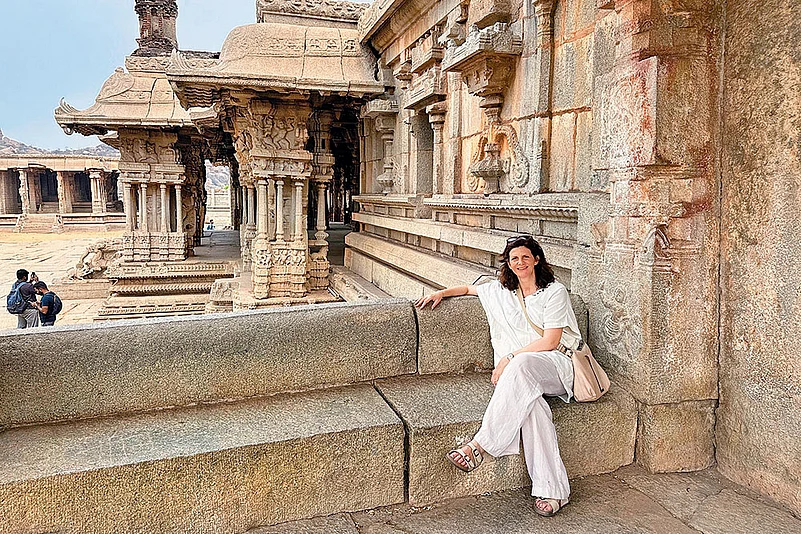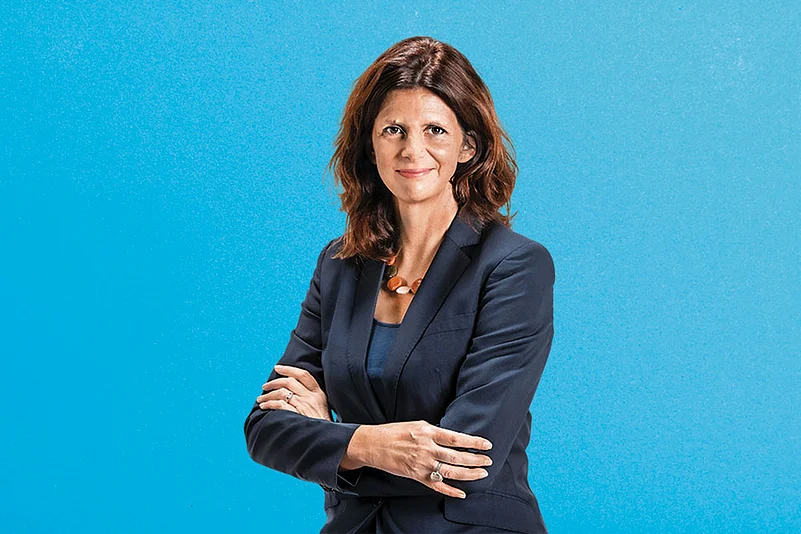For Alison Barrett, India is more than just a country—it forms a big part of her identity. “I’ve spent two decades living, working and travelling across India and I love the country very much,” she says. The Himalayas and the serene landscapes of Ladakh hold a special place in her heart.
Varanasi, the city of ghats, is one of her favourites. It was here that she learned Hindi before joining the British Council. After spending a considerable amount of time in Delhi and Chennai, she loves both the cities. Her curiosity about people’s stories, their experiences and cultures, takes her to places. Different cultures and history fascinate her.

At an early age, Barrett took up a voluntary position in a school in Nepal and went to Japan to teach English in one of its high schools. She had spent a chunk of her life in these two countries and also connected deeply with their people and cultures. “In Japan, the people were incredibly friendly, and I found the whole experience very similar to my own upbringing in the UK,” Barrett recalls.
Exhibitions, art galleries and museums are places that she is very fond of. “I think understanding the art and the culture of a place is a brilliant way of understanding its history.” She has been to the ancient fort city, Mandu in Madhya Pradesh and explored the old churches of Goa.
She is also an avid reader. “I love reading because it gives me an insight into different perspectives, lived experiences and helps me understand the world a bit better.” She even started a book club with 14 other women.
I love reading because it gives me an insight into different perspectives, lived experiences and helps me understand the world a bit better
Courting India by Nandini Das was one of her favourites in 2024—it’s about the life and times of Thomas Roe, the first British ambassador to the Mughal court in the early 1600s. Her current read, William Dalrymple’s The Golden Road, according to Barrett, is a brilliant investigation of India’s contribution in mathematics, science, culture and arts.
Barrett started her career as a teacher and later specialised in teacher education. She says, “I had the opportunity to observe teaching and learning in some of the most remote schools, single-teacher schools with teachers working to support students of different ages in multilingual classrooms.”
Barrett has mentored many women, helping them overcome barriers in their careers. In one training programme, she noticed that female teachers with families struggled to travel long distances or join residential programmes. She collaborated with state and district authorities to find solutions, such as creating a creche for child care and arranging special transport to ensure safe travel for women.
Barrett has always embraced risks, supported by mentors. At a pivotal point, she faced a tough decision: pursue a master’s degree after having a baby, relocating to a new city and taking on a new leadership role. Despite the pressure, including moments of regret, she chose to go with the degree. In hindsight, it proved to be the best decision as it fuelled her professional growth more than any other time in her career. Her advice for young female professionals is the same. “Make sure you go for that opportunity even if you have self-doubt. Trust your instincts and be resilient,” she says.
She also believes that women must be allies. “We need to create opportunities for each other to be seen and heard, because all too often it’s the female voice in the room that gets ignored,” she adds.
Authenticity, sense of purpose and self-awareness are key to being a successful leader, Barrett explains. “If you are self-aware, you can recognise when a change you are leading is not being fully understood, or if there’s resistance to it. It is important to reflect on it and alter your approach.”












